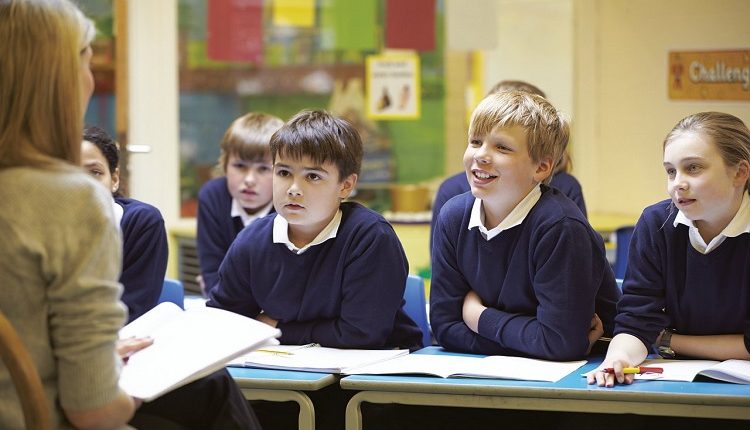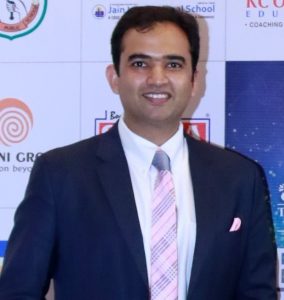Goodbye PTM, Welcome Development Discussions
Delhi Public School's Gautam Rajgarhia tells us why it is important for schools to do away with the traditional Parent Teacher Meeting (PTM) approach, and instead, involve students in discussion of their goals, growth and improvements.
I remember the nervous mornings going to school with my mother to meet my school teachers every quarter for the dreaded PTM. The PTM or the parent teacher meeting is an old practice of informing parents about the child’s progress. Usually, this is a session wherein the child is made to sit in silence (like a lamb about to be culled) and parents and teachers decide what is best for the child. Walk into any school PTM and you could be hearing phrases like “XYZ is a good, well behaved student who needs to focus more on his studies,” or “He needs to pay attention in class” or “His handwriting is quite poor.” Now, my problem with this approach is that it gives no onus to the student for his/her development. It sounds as if parents are responsible for the further enhancement or tweaking required in their product, which according to the teacher is faulty and needs repair, and which the parent is now going to fix.
Yes, parents are an important part in a child’s development but the PTMs are more like the teacher and parent coming together and telling the child: We know and we agree there is a problem with you, and we will make it go away. Well, why not tell the child itself and work with him/her to improve on it?
We have all heard the phrase, “Tell me; I forget, show me; I remember, involve me; I understand.” Well, this phrase couldn’t have been more appropriate in case of PTMs; only if we involve our children in the discussion of their goals/ growth ideas and improvements, will we see any tangible results.
Parents are an important part in a child’s development but the PTMs are more like the teacher and parent coming together and telling the child: We know and we agree there is a problem with you, and we will make it go away
It is time to put the onus onto the children for their own learning and development. Welcome Development Discussions.
Development Discussions are friendly chats between teacher and student on areas they would like to improve on together. It is not a one-way communication, but a collaborative approach wherein the teacher also tries to understand the child’s point of view. And this is not necessarily only a discussion on the child’s academic performance. A good Development Discussion is a well-rounded discussion on all aspects of growth, such as hobbies, values, behavioural traits, likes, dislikes, sharing of feelings and academic and non-academic achievements.
Steps to a successful Development Discussion
1. At the beginning of the year, ask students to set some goals for themselves. These could be academic or non-academic goals. Remember to encourage students to be independent in setting these goals for themselves. For younger children, parents can help with writing, but let the child think independently.
2. Ask students to work on their goals and reach out to you if they need any help or guidance in achieving them. Set a time for the development discussion and let the child know that we will review the progress of these goals at a certain date and time (if possible, schedule it well in advance and invite parents to be a part of it).
Development Discussions are friendly chats between teacher and student on areas they would like to improve on together. It is not a one-way communication, but a collaborative approach wherein the teacher also tries to understand the child’s point of view
3. Review the students’ progress in achieving these goals once every quarter. Ask students to document the meeting and keep a log of their progress. Parents are spectators in this discussion and can have their Q&A towards the end.
Point to note – Do not have development discussion only after academic results or after exams. This way you are telling children that we only review academic results.
4. During the discussion, be open to ideas and brainstorm with students on ways to achieve the desired goals. If the child is failing at achieving his/her goals, be empathetic towards them. Learning about failure is equally important. One of your important tasks is also to help students set up realistic goals.
5. Keep the meeting crisp and short, not more than 30 mins long.
6. Schedule a meeting separately with a parent if there is a red flag that you would like to highlight with him/ her. This meeting should be without the child, if possible.
7. Continue this process through the year and handover the findings to the next year class teacher for record/ review.
Once we put the onus onto children for their own learning and development, you will see a more confident, engaged and happy student. At the end of the day, we all look for that in a child, but our old practices work against us in achieving these.
Written by Gautam Rajgarhia, Pro-Vice Chairman at Delhi Public School – Varanasi, Nashik and Lava Nagpur
DISCLAIMER: Views expressed above are that of the author and do not reflect the views of the website. The Peeper Times does not assume any responsibility or liability for the same.
Do you feel strongly about something? Have a story to share? Write to us at info@thepeepertimes.com or connect with us on Facebook or Twitter



 Parents are an important part in a child’s development but the PTMs are more like the teacher and parent coming together and telling the child: We know and we agree there is a problem with you, and we will make it go away
Parents are an important part in a child’s development but the PTMs are more like the teacher and parent coming together and telling the child: We know and we agree there is a problem with you, and we will make it go away
Comments are closed, but trackbacks and pingbacks are open.